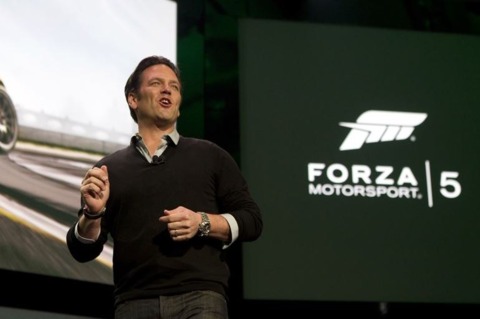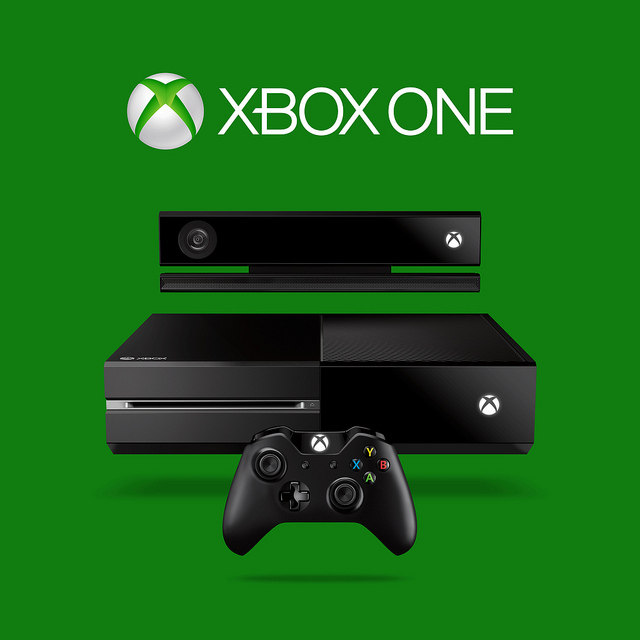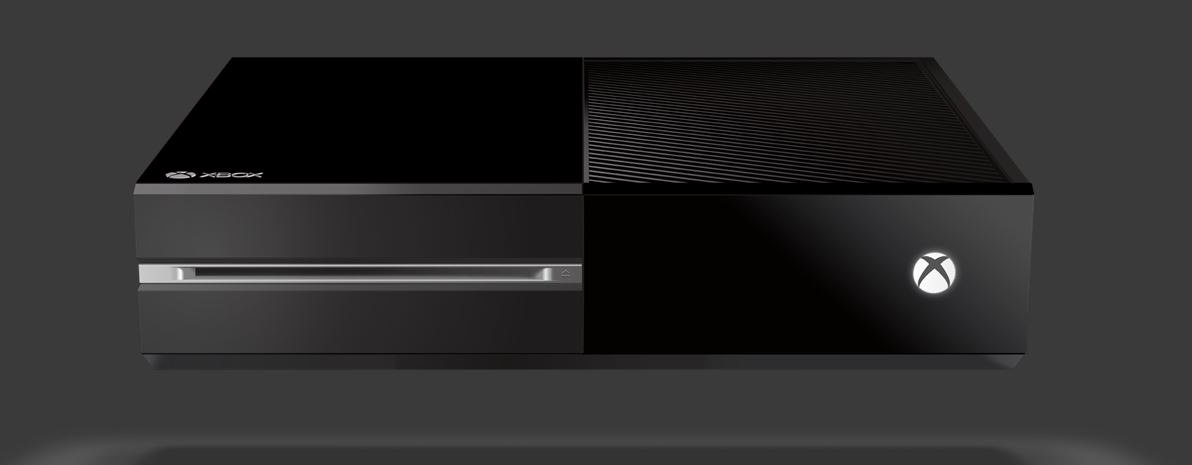Xbox One: Microsoft's Phil Spencer Talks Used Games, Always-On
Microsoft Game Studios VP Phil Spencer opens up on hot-button issues related to the just-announced next-generation platform.
After years of secrecy and much speculation, Microsoft laid out its vision for the next-generation of games and entertainment yesterday during a media briefing in Redmond, Washington. 
The company claimed the Xbox One will be an all-in-one device, capable of streaming live television, powering next-generation games, and connecting users with friends and family across the world with new video services like integrated Skype calling.
But for as much as Microsoft shared, the company also kept relatively quiet on numerous issues consumers might want more information about.
How much will it cost? Will it play used games? Do I need a constant Internet connection? Will it play Xbox 360 games? Because Kinect 2.0 is always-on, is it snooping on me?
GameSpot caught up with Microsoft Game Studios VP Phil Spencer to get a fuller understanding of the Xbox One feature-set. Below are highlights from our conversation.
Is the console always connected?
So the box was designed as a connected device. We thought about people's worlds today. Whether it's on their phone, their PC, their tablet, people are always connected. And their experiences with it, things like Twitter, Facebook, Skype, [they] rely on a connection to the outside world. We're seeing more and more of that in gaming as well. All that said, we understand sometimes you lose connection. There's certainly functionality that happens in the box that if you lose a connection [it] shouldn't stop whether I'm playing a movie, playing a single-player game. So if you lose your connection, the box will continue to perform and you will be able to watch your movie, play your single-player game. We wanted to build a fault-tolerant system. That said, a lot of experiences are multiplayer in nature. Obviously, your multiplayer experiences aren't going to work if your Internet goes down; Skype stops working, Netflix stops working if the Internet goes down.
I have to ask about used games. Will the box support used games and how is that model going to work?
So we'll talk about some of the 'how' at a later date, but I will say that we understand the importance of the secondary market. The secondary market was important in the current generation. We designed Xbox One understanding secondary market would be important in the new generation as well. We'll share more details, but people should know that it is a design criteria for us on the new box.
I think it was mentioned that all new games have to be installed.
Yes.
Is there any kind of DRM or anything that's happening where you're prevented from playing a game, a single-player game even maybe, if you're offline?
So one of the advantages in the Xbox One generation, the reason we're looking at installing and understanding which games are yours and you own, is the ability for your games to roam with you. And you can go to a box and the box knows which games you have and you can take those games with you and move around. I think that's a real strong component of the platform and it obviously requires some local version of the game because you don't have to carry your disc around with you, as you're kind of bringing your content with you. So I think it's going to unlock a lot of capability for the gamer, much like they walk around with their gamerscore and their Live ID.
Given that all games need to be installed, is a 500GB [hard drive]…that doesn't seem very big. I'm assuming some of the games are going to be pretty huge now coming on Blu-rays.
We did a lot of testing; we looked at the content that's being created today and what our roadmap looked like in terms of content creation. One thing I'd say about content today is you see content being delivered at many different levels. You have big, disc-based games that come out, but you also see games that start more service-related; where they come out small and they grow as the person builds their experience. Our math says that the 500 gigs will be a lot of storage space for the gamer in terms of how much game local data that they will save. Obviously, the game is yours, so if you were to delete something off the hard drive, you could obviously always re-install something if [you] ran into a situation where you were running out of space. But our math, when we look at the number of games that somebody usually owns and the content they consume, we think the hard drive will be a nice hard drive for people.
Do I get to bring [my XBLA games] with me [to the Xbox One]?
Those games will continue to run on your Xbox 360 for as long as your Xbox 360 runs. The box is not backward compatible and we think for somebody who invests in a large digital library that you want to keep your [Xbox 360]. Keep that as a vibrant part of the ecosystem. That's why we've made sure that your identity, your friends, are constant between both platforms. You don't have a separate identity on Xbox One or [Xbox 360]; it's the same, you are you. My friend's network is the same on both boxes, my achievements are the same. So we think that service component is an important component to keep constant across both devices.
So presumably you anticipate there being sort of a lot of support for the [Xbox 360] in terms of new XBLA releases and stuff…
I think the [Xbox 360] is going to be very vibrant for many years. In fact, we have a huge, I think it's huge, [Xbox 360] announcement for E3 that I keep wanting to talk about, but I can't. I think it will surprise people. I loved what we did with Minecraft; bring Minecraft to the box; six million units later it's kind of a beast. I think there's a lot of life in the [Xbox 360] for years to come.
Is the Xbox One being designed to support things like free-to-play games and maybe like episodic games and stuff like that?
We as a first-party think it's important that we push the boundaries of business models and delivery. We launched free-to-play games on console this fall (Happy Wars), and we've had some success there and we'll continue that flow of content. The business model, the content distribution is an evolution in gaming. People are playing games on all kinds of devices today; on phones, on tablets, on PCs, on consoles. And you see different kinds of business models; games that start small and kind of grow as a service and I think the Xbox One and its capabilities and the strength of Live on the backend will bring the television screen into that same capability that people see on their other devices.
Am I right in saying the Xbox One will only work when the Kinect is attached to it?
Yes.
I had a weird experience with my original Kinect where I was playing Fable II and I had no idea that my Kinect was doing anything at that time. And so I'm in the world; I see one of those little bubbles representing someone I know.
We call them Orbs (laughs).
And I start talking to my girlfriend who was with me at the time and I mention the guy who I'm seeing in the game and he comes out of the speakers and he can hear everything I'm saying because the Kinect is plugged in. Are there going to be options to kind of turn off all of this?
You definitely will have the software capability to turn off all the capabilities of Kinect. We want to put the gamer in control. And privacy. The box data information that collects is your data; it stays with you. You are in control of what you want to be collected. Game developers will obviously enable certain features and you'll be alerted when certain things are happening. Putting the gamer in control is really important.
With the new [Kinect], I had the demo earlier, and it seems like it's tracking an awful lot. While I'm playing a game, you're tracking my heart rate, my attention. Am I looking at the screen? Am I distracted? Am I smiling?
We should be careful in how we characterize those features. Those are features that are available to game developers. You think about emotion or where your head's looking; these are tools that a game designer can use in developing the game and creating more immersion. The amount of capabilities in Kinect has grown tremendously. But the data that it's collecting is really specific to the experience that you're in.
It seems like the kind of data that could be theoretically collected and then used to influence [future developers] for a sequel or something.
I won't just focus on Kinect because I think about how far somebody gets in a game, where the pinch-points are, where do people fail. All those analytic capabilities are really important to us in designing future iterations of games and finding out what people love. That capability to the developer is really important as they try to get better at their craft and make better experience. But we obviously want to put the gamer in control of what data gets shared.
The Xbox One launches later this year. Microsoft will ship 15 exclusive titles for the platform during its first 12 months. Eight of these games will be all-new franchises. For more, check out GameSpot's Xbox One news hub.
Marvel Rivals - Official Loki Character Reveal Trailer | The King of Yggsgard Remnant 2 - The Forgotten Kingdom | DLC Launch Trailer Stellar Blade - Official "The Journey: Part 2" Behind The Scenes Trailer | PS5 Games Fortnite Festival - Official Billie Eilish Cinematic Season 3 Trailer Dead by Daylight | Tome 19: Splendor | Reveal Trailer Destiny 2: The Final Shape | Journey into The Traveler Trailer Starship Troopers: Extermination - Official "The New Vanguard" Update 0.7.0 Trailer 2XKO - Official Illaoi Champion Gameplay Reveal Trailer Solo Leveling: Arise - Character Gameplay Teaser #15: Seo Jiwoo Genshin Impact - Character Demo - "Arlecchino: Lullaby" Goddess Of Victory: Nikke | Last Kingdom Full Animated Cinematic Trailer Metaphor: ReFantazio The King’s Trial Trailer
Please enter your date of birth to view this video
By clicking 'enter', you agree to GameSpot's
Terms of Use and Privacy Policy
Got a news tip or want to contact us directly? Email news@gamespot.com


Join the conversation